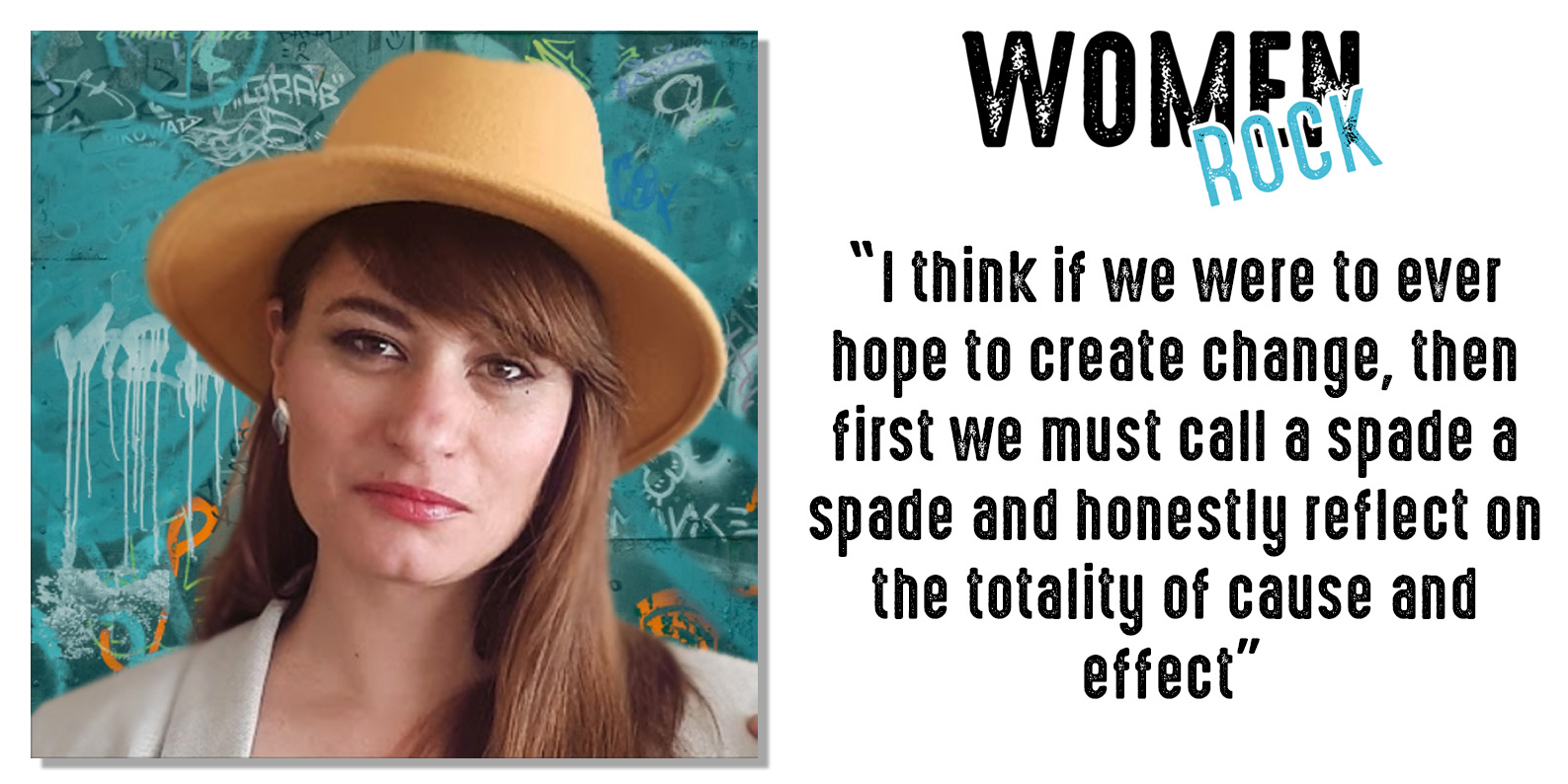
Candice Storm | Design In Focus
What is the Value & Impact of Creativity, Innovation and Design (CID) in Business & Society? Look around you, how much of your own environment has not been created, innovated and or designed? Think of all of your engagements beyond yourself, how much of that has been created, innovated and or designed? Your communications, entertainment and work, all have been shaped by CID. The value & impact of CID is present in all of our lives, and yet, a great deal of those who make the functional world are often underrepresented, exploited or disabled to do better.
Enter Candice Storm. Candice started building DesignInFocus.org, a multimedia & professional platform serving CID in April / May 2022. Having worked in Government, Retail, Entertainment and Technology, she connected the dots to develop DesignInFocus.Org in such a way as to enable humans to step up and also do more with less. While DesignInFocus.Org was started as a side project sponsored by StormCIS 360 Corporate Identity Solutions (her design agency), it now is a full-time activity – from the design, production, organisation and development, to creating multimedia with professionals and companies. And if that isn’t enough, Candice also designs gamified workshops to convey challenging topics in synthesizable interactions.
Women Rock ambassador Cameron chatted with this incredible trailblazer about her multi-faceted journey into tech…
TELL ME A BIT ABOUT YOUR JOB AND WHAT A DAY IN THE LIFE LOOKS LIKE FOR YOU?
I do several things. When I’m working for clients my job includes analysing and improving existing digital products and services through creative problem solving, from Design Strategy to Digital Design to DesignOps. I work on branded experiences also, creating corporate identities, marketing and promotional content as well as web and social media.
I also spend a great deal of time building DesignInFocus.Org. A lot of time goes into designing and building the actual platform and its content. Next to that I also engage with stakeholders in various capacities such as participants to talk with in the Design in Focus media, or to speak at our events, collaborating with professionals and organisations to create interesting professional activities and working with volunteers. I’m having to develop and learn in areas that I’m not familiar with, such as learning Velo to implement code on the platform, making podcasts, and growing a sense of business administration and organisation.
Lastly, I manage the Design in Focus flagship network Randstad UX, which was launched to demonstrate how the platform could be leveraged for others who would like to start their own networks and communities relating to creativity, innovation and design. I organise monthly events and share relevant information with the network. Most of the events tend to be informative and so I organise talks and presentations, but for example this month I’m organising a networking event with cocktails at a skylounge in Amsterdam, and to celebrate the one year anniversary of the network, I’m working on throwing a gala in October!
WHAT MADE YOU GET INTO THE INDUSTRY?
I have quite an unusual background and a lot has happened on top of all the winding roads, personality-wise, I also deviate from the norm. When I started school, I passed the first year and went straight to the 3rd year. I liked school but after a traumatic experience at boarding school, I lost interest in and stopped paying attention, after that my marks were average. To deal with the situation, I started drawing. I was kind of good at it and received positive treatment or rewards such as my teacher printing my drawings for everyone to colour in, or people giving me attention (I also grew up in a culture where “children must be seen but never heard”, so it was more impactful). Well, skip forward to my final year, I had to decide what profession to get into. I was deciding between Psychology or Archaeology when I became expectant with my daughter, and so thought I should better take Psychology, but when I went to enrol at Uni, there was no space and that’s when my guardian suggested law.
After completing the year, I faced two challenges, one was that I did not have the finances to study the next year, and two my feelings towards law were pretty negative – I perceived it as an inadequate attempt to establish justifications within a flawed system. So, I ended up doing a short study in Public Relations, and there is where I discovered that I really liked media and creating media kits. After that, I went for an aptitude evaluation at my local university. Their advice was to study design, which I resisted at first because I did not want to become “a starving artist”, but because I had no real vision for the future, I took the advice. My focus was on Corporate Identity which marries with PR in many ways, but I mainly worked on digital projects after my studies. After working in digital for 3 years I realised that I had more talents and additional interests and so started growing towards product/project management and UX. And the rest I guess is history.
WHAT WAS THE REASON YOU WANTED TO START BUILDING THE “DESIGN IN FOCUS” WEBSITE /PLATFORM?
There were many influences in starting Design in Focus. It would make more sense to understand that what the platform is today is not what I started with, but more of something that evolved. Last February I registered my company StormCIS and built a website for it. As an Identity Experience creative, I was planning a podcast with someone to help him elevate his professional digital presence in order to get hired. Next to that I also made a connection with someone who organised a conference who wanted to cocreate on podcasts. Things didn’t quite work out as planned and so I started reworking the concept. I used my own experiences to conceptualise a product that would be able to solve some of it, and I also listened to what my stakeholders had to say.
As a designer, I’ve had to create portfolios throughout my career and as a digital / web designer, I needed to showcase my capabilities. So I guess if we strip it down all the way to the core, then building websites is just something that is an average activity for designers. However, I found it very challenging to create a portfolio because that tends to serve only the owner, and because of some of my background, I found it difficult to care for or nurture myself only, which meant that I was never satisfied with anything I made. But knowing that I exist and that my situation existed, I thought “What if someone else has this challenge”, and so started working on a concept that could be beneficial to any creative, innovator and or designer. The platform is growing continuously and I keep conceptualising solutions to common problems.
You can read more about this in an article I wrote here.
YOUR QUOTE IS “EMOTION IS THE PALETTE OF THE SOUL”, WHAT DOES THAT MEAN TO YOU PROFESSIONALLY?
That is a very layered quote that impacts a few key areas. Firstly of course from an experience design perspective, how the person engaging with the design perceives the value of doing so is an integral aspect of my profession. From a brand perspective, the leveraging of human behaviour, which is mainly governed by emotion, tends to be the foundation of a company’s communication and products / services they develop. So professionally emotion is an integral part of my work.
Then there is the personal layer. Having survived a thing or two and experiencing life in different roles, I am all too familiar with how emotion shapes the existential experience. As much torment as I have endured as a victim and a mother, I also would not change it because I value the good emotions that my child has brought into my life. As much anger and resentment as I’ve felt due to unfair situations, I also feel a certain level of accomplishment for coming through. NOT ASKING FOR MORE by the way! The extremes between emotions which are so fantastic that one seeks to maintain for as long as possible and the emotions which make you wish that life itself would come to an end, has given me an understanding of humanity and myself which I see as a living painting of exchanges that reveals a rich and vibrant notion of creativity and the creative nature of life.
There are also a few different angles which weigh it in different perspectives. Even as professionals and entrepreneurs, we are every bit as exposed to the effects of emotional manipulation as everyone else. So somewhere between the professional and personal, there is an interconnectivity that cannot be avoided. There really is a lot more to be said and a few cases that I could mention that tell the stories associated with this, but that is too much for an article. I presented my talk on the Human Connection last week and there has been a request to share it on LinkedIn, which you can watch here.
HOW DO YOU THINK WE CAN HELP TO CHANGE THE “OLD WAY OF THINKING AROUND EMOTION IN THE WORK PLACE”?
There is no easy answer because of the extent to which emotion drives business, politics, education and every other aspect of our behaviour. Recently I discovered a whole collective of professionals spanning in the thousands who are doing what they can to make changes through ethics, human-centered design, accessibility and a lot more. If you read my article about AI & Ethics then you will notice just how complex a topic such as ethics can be. To try to find some tangible and effective solutions, I’ve just launched the #ImpactCollective last month, which is a listing page of professionals who are engaging in conversations and building awareness of some of the biggest challenges we face.
Our first Northstar is Dr Robert Kozma, author of Make The World a Better Place, Design With Passion, purpose and Values, released earlier this year, pretty much at the same time as Don Norman has released his book Design For A Better World. You can find a conversation between the two in the #ImpactCollective portal here, and there will be more to come. On the Experience portals you may find Trine Falbe , founder of the Ethical Design Network, and we’ve also created events such as Design For Good , Design for Accessibility and coming up this summer, Design for Tomorrow There are a lot more happening under the bonnet, but as I am also doing so many other things and with limited resources, it may still take a while to surface. (Volunteers are highly valued, hint hint, wink wink)
What I can say is that from my first talk with Trine early last year to where I am today, I have somewhat more trust in humanity. When I first spoke to Trine, I had tremendous respect for her work and balls to take on this delicate matter but told myself to not focus on this kind of topic too much because of the penalties we pay as professionals, especially when we are in vulnerable positions as I had been, just is not worth the effort. But earlier this year when I was organising the Design for Good event, I saw a different perspective. Although I’ve seen the emergence of CID professionals taking charge, I am all too aware of the interconnectivity of things.
The systematic structure that rendered law hypocritical bs to me, is evident not only in law and design, but in a lot of other areas too. I think if we were to ever hope to create change, then first we must call a spade a spade and honestly reflect on the totality of cause and effect. Based on the themes of the above-mentioned professionals and activities, for me, it is pretty evident that there is enough of a force to incentivise professionals to address these challenges, but with that also comes buzzwords and terms. So, it is very very complex!
For me the lens to look through that might yield the most impact is through the value we place on human emotion. Personally, I highly value business which is rooted in exchange of value. I love fine art, jewellery, luxurious homes and furniture, I love my amenities such as clean water, electricity and telecoms. I think business is super important because none of this would be possible without it, but I also believe it to have been perverted due to profit pushing at all cost. I think certain sectors must never be privatised or profit-driven, especially when those industries are involved with aspects that are integral to human survival and thriving.
WHAT BENEFITS DO YOU THINK COMPANIES CAN GAIN FROM THIS?
Well, that depends on the companies. some companies would not be able to survive were it not for the human violations. I’m not really sure how to shortly explain fully, but the structures that enable their existence have been put in place through loopholes and conceptual justifications created by those who profit from it. Next to that, there are not always many options for alternatives. Just recently I was in a group conversation where someone said that those wanting to make valuable changes in the world should volunteer and work for good causes. It sounded ridiculous to me. In my eyes, those who are solving real issues and delivering solutions should be the most rewarded, not work for free or for scraps.
I think if we start building businesses based on the foundation of exchanging value, then it would change the landscape completely. Many companies use the buzz term design thinking, and designers have long been involved in the reward aspect of creating value. And yet, at the same time, some companies really miss the mark in understanding that design is meant to creatively solve problems, more than to create problems to force compliance.
That said, there are companies that exchange value and do profit from being human-centric. Trust and loyalty is one massive metric that yields bountiful harvests. Ok, we all know this, that is why it is exploited by harnessing the darker aspects of humans and human emotion, but at the same time sports and academic achievement is as high as ever. What this tells me is that we do have the desire to feel victorious and with that, I think we can rely on a metric of achievement to benefit from how we measure success. I think if we centre our businesses around building legacies instead of bank accounts, then we will really reap the benefits. Because we go through quite a lot of conformist validations throughout our educational backgrounds, we are often more able to just do a thing, than to actually be original and unique.
Add luxury mindset and power struggles to the mix, and you end up with the economy we have today, which if we were competent and able, would be less volatile and we would see less recessions and economic disasters. Applying more human-centric techniques and solutions would enable us to build stronger economies and cement our positions as true champions in business. Maybe companies are satisfied with ephemeral accomplishments, but I personally believe that winning business champs are akin to a house with a strong foundation. It can stand its ground for a really long time and survive the worst weather while offering comfort and reassurance.
Thanks, Candice! You rock 🤘
Interview by Cameron Daniel






